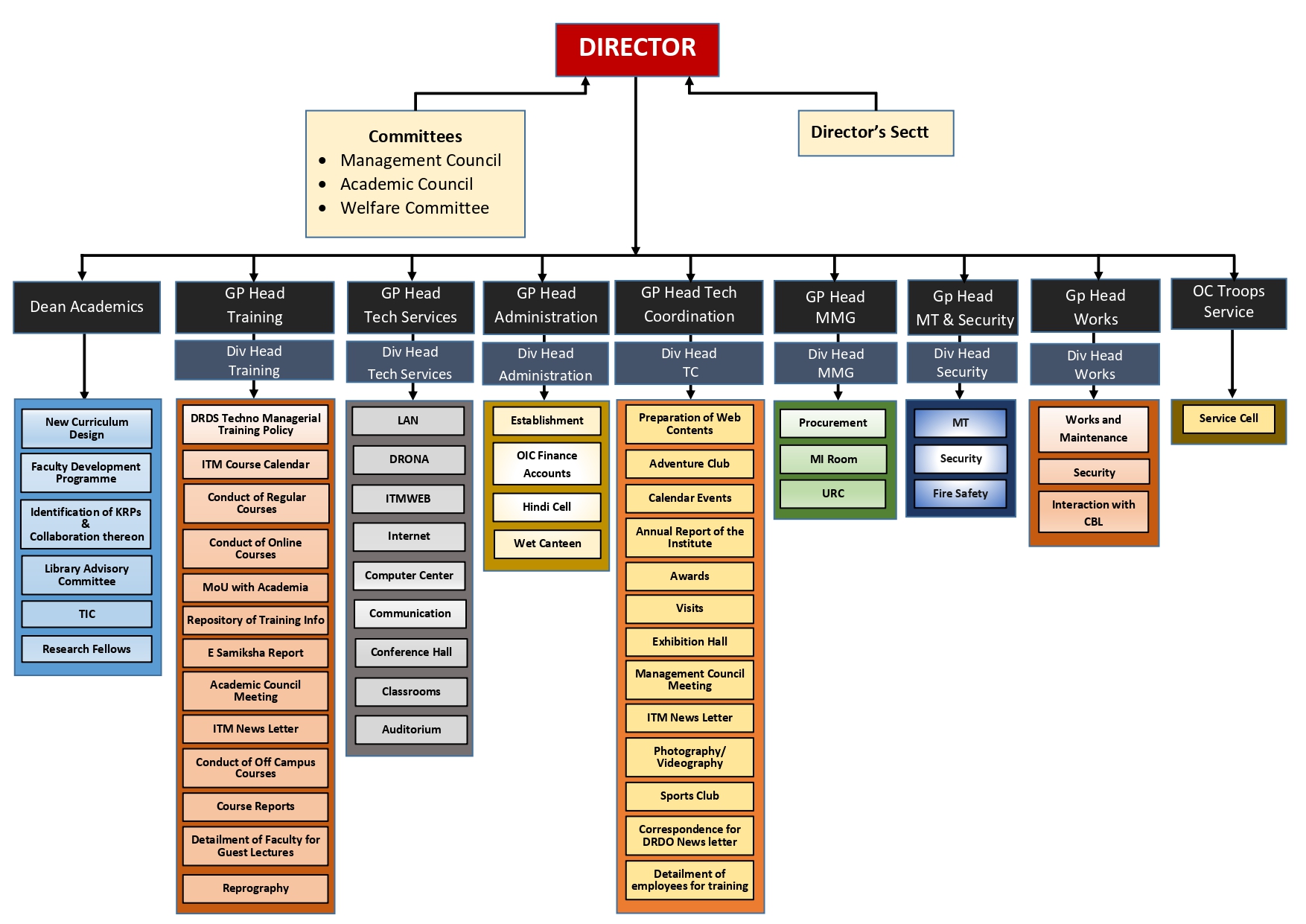About Lab
The Institute was established and christened as Institute of Work Study (IWS) at Landour on 26th February 1962. Landour, a small cantonment contiguous with Mussoorie located at an altitude of 7500 feet in the lap of Garhwal range of Himalayas. It was renamed as Defence Institute of Work Study (DIWS) on 23rd February 1964. At its inception, the primary aim of the Institute was to train personnel of Defence Services and other defence organizations in the field of Work Study and related subjects. The institute rose to prominence under Ministry of Defence by offering assistance in practical application of Work Study concepts.
By mid 70s, new courses were introduced in the area of ‘Project Management’ to train scientists of DRDO. In early 80s, curriculum facilitating scientists of DRDO to undertake major system-development projects/programmes were included.
During 80s, other Defence Organization viz: Directorate General of Ordnance Factories (DGOF) and Directorate General of Quality Assurance (DGQA) also started participating in specialized and customized training at DIWS. Courses namely R&D Management, Project Management, Technology Transfer, Financial Management in Projects, Organizational Management and Six Sigma were introduced. These courses were highly appreciated by the DRDO Laboratories and other beneficiaries.
By early 90s, due to change in operating environment, the requirement of skill set of Scientists of DRDO demanded a metamorphosis of training curriculum. Subsequently, the Institute got its scope enhanced and also re-christened as Institute of Technology Management (ITM) on 04th February 1994. The mandate since then is focused to conduct specialized courses in Technology Management and related disciplines.
Presently, ITM is conducting courses in four different specialized areas. These are Technology Management, Project Management, Materials Management and Organizational Behaviour. Apart from this, ITM continues to conduct Advance Work Study (AWS) Course primarily for service officers along with officers from DGOF, DGQA, Indian Coat Guard and DRDO.
Implementation of three levels mandatory Techno-Managerial training for scientists of DRDO is a newly added mandate. Accordingly, ITM has designed an approved training curriculum for newly inducted scientists, called Post Induction Training School (POINTS). A similar training programme for laterally appointed scientists, called POINTS (L) focuses to facilitate seamless integration of newly inducted scientists into the main steam of DRDS by enabling for the transition of student-life to professional-life and to familiarize them with the working system, procedures in vogue. A Mid-Career Training augmentation (MITRA) is conceived for scientists to undergo a 4- week long training just after their promotion to the Grade of Scientist D. The curriculum aims to enable them to shoulder higher responsibilities. A specialized Training on Essential Management Skills (STEMS) is in place for the Scientists on their promotion to the grade of Scientist ‘G’. STEMS aims to arm senior scientists with cutting edge management skills and contributing to enhance their decision making ability. Besides, Widening Your Administrative Skills (WYAS) Course, a programme for newly appointed Directors and Organizational Excellence are two apex level courses. These are conceived to enhance decision making ability and to hone their leadership ability respectively.
Management Council
The Management Council is the apex body of ITM to see the overall development of infrastructure, image building and address the issues related to discipline and procedural bottlenecks. The Council meets twice a month and comprises of Director(Chairman), all Gp/Div Heads and special invitees as per agenda.
Academic Council
The Academic Council is the apex body of ITM to evolve policy on overall course design, academic collaborations, faculty development, and provide solution for improving the course curriculum. The Council comprises of Director (Chairman), Dean (Academics), Group Head Training and all Faculty Members. The meeting of this Council takes place once in a week.
Organizational Chart
Click here for Organizational Chart PDF



